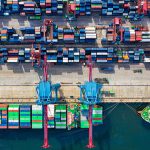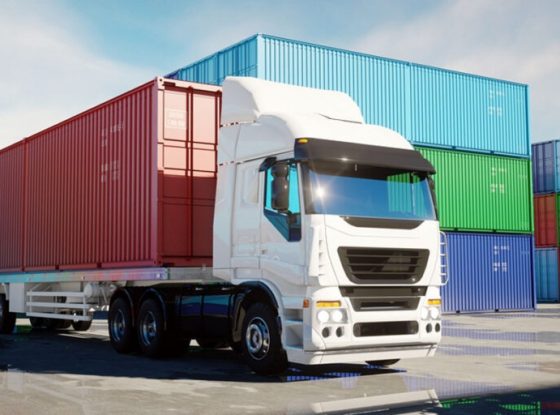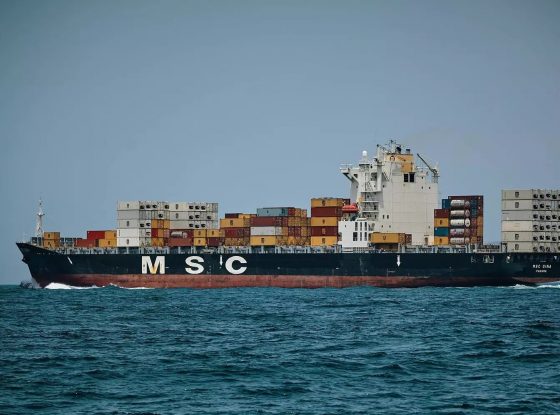Pemanfaatan Teknologi Blockchain dalam Manajemen Rantai Pasok Pertanian

Utilization of Blockchain Technology in Agricultural Supply Chain Management – Agricultural supply chains involve complex processes involving various stages, from production, distribution, to consumption. However, transparency, security and efficiency are often challenges in agricultural supply chain management. To solve this problem, blockchain technology has emerged as a potential solution. In this article, we will discuss how leveraging blockchain technology can change the way agricultural supply chain management operates.
Blockchain is a decentralized technology that allows sending and storing data securely and transparently. In the context of agricultural supply chains, blockchain can provide a key advantage, namely transparency. Every transaction or activity in the agricultural supply chain, such as production, delivery, and sales, can be recorded in cryptographically linked blocks. This information is accessible to all parties participating in the supply chain, including growers, distributors, retailers and consumers.
With this transparency, agricultural supply chain management can track every step from production to consumption. Information about product origin, production method, processing and quality can be clearly verified. This helps increase consumer confidence in agricultural products and ensures that the information provided about products is accurate.
Utilization of Blockchain Technology in Agricultural Supply Chain Management – In addition to transparency, security is also an important factor in agricultural supply chain management. With blockchain technology, every transaction or data change in a block must be approved by a decentralized network of users. This ensures that the data entered into the blockchain cannot be easily changed or manipulated. As a result, information on product authenticity, organic certification and test records can be verified and their authenticity guaranteed.
Blockchain technology can also increase efficiency in agricultural supply chain management. In traditional supply chains, documentation and tracking often consume significant time and resources. With the adoption of blockchain, this process can be done automatically and in real-time. Each party in the supply chain can access the latest information quickly and efficiently, reducing administrative costs and accelerating the flow of goods from producers to consumers.
The use of blockchain technology in agricultural supply chain management has resulted in several promising initiatives and projects. For example, several blockchain platforms have been developed to track the origin and quality of certain agricultural products, such as coffee, organic vegetables and meat. Through this platform, consumers can clearly see the product footprint, ensuring sustainable practices and sustainability.
However, although the potential of blockchain technology in agricultural supply chain management is very promising, there are still some challenges that need to be overcome. One of them is the adoption and integration of blockchain technology into the existing infrastructure. It requires cooperation between all stakeholders in the agricultural supply chain to adopt and implement this technology effectively.
In addition, issues of scale and capacity also need to be considered. Blockchain technology requires considerable computing power and can cause delays in verifying transactions. Therefore, further research is needed to increase the speed and efficiency of this technology so that it can handle large volumes of transactions in complex agricultural supply chains.
However, although there are still challenges that need to be overcome, the utilization of blockchain technology in agricultural supply chain management has great potential to optimize transparency, security and efficiency. With increasing consumer demand for information about the origin and quality of agricultural products, blockchain technology can become a powerful tool to meet this need.
Apart from that, blockchain technology can also help build better relationships between farmers, distributors, retailers and consumers. With greater transparency, farmers can get the recognition and rewards they deserve for the quality agricultural products they produce. Distributors and retailers can clearly verify the origin of products and ensure the availability of fresh and quality products for consumers.
In conclusion, the use of blockchain technology in agricultural supply chain management provides great potential to overcome the challenges of transparency, security and efficiency in the agricultural industry. With proper adoption and good cooperation between stakeholders, blockchain technology can change the way we view and manage agricultural supply chains. This will bring significant benefits, including increasing consumer confidence, increasing operational efficiency, and driving the sustainable growth of the agricultural industry.
Source : pertanian.uma.ac.id



